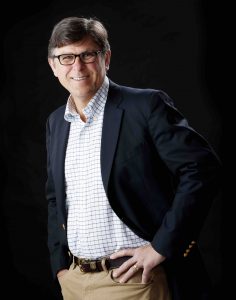
March 27, 2018. Photo by Craig Chandler / University Communication
William “Will” Thomas is the Angle Chair in the Humanities and Professor of History at the University of Nebraska. He was co-founder and director of the Virginia Center for Digital History at the University of Virginia. A Guggenheim Fellow and a Lincoln Prize Finalist, Will has collaborated across disciplines to create imaginative forms of history.
He is the author of A Question of Freedom: The Families Who Challenged Slavery from the Nation’s Founding to the Civil War (November 2020, Yale University Press). With partners Michael Burton and Kwakiutl Dreher, Will is a co-founder of Salt Marsh Productions, LLC, and Animating History.